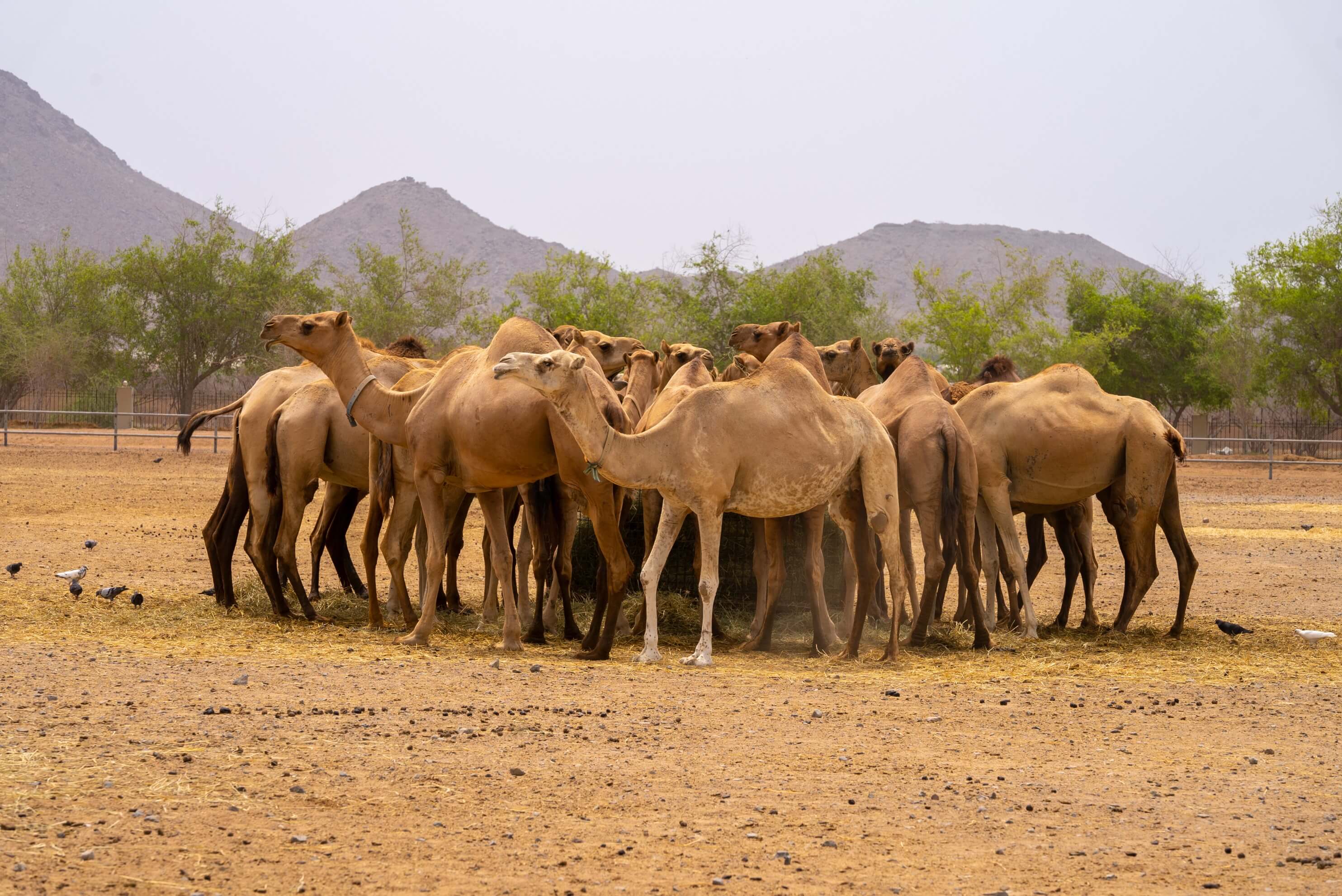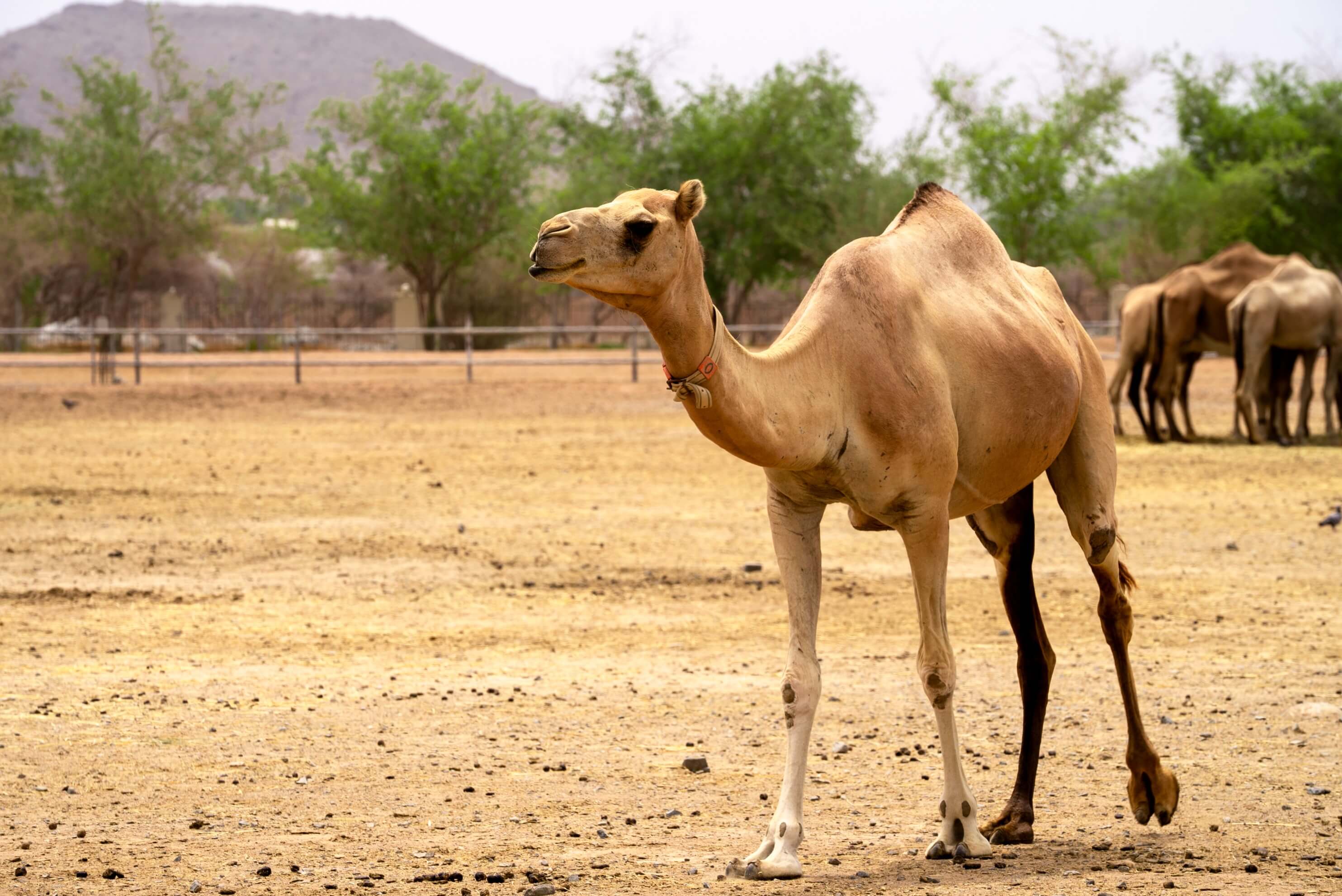Camels
The camel is a remarkable creature with the unique ability to endure harsh
environmental conditions. It can withstand dehydration for several days, endure
hunger for about a month, carry heavy loads, and travel long distances. Moreover,
due to global warming and the limited rainfall in many regions, camels are now
considered an alternative to other farm animals for meat and milk production.
The wise leadership in the U.A.E. has consistently shown great reverence for
authentic Bedouin history over the years, underscoring the significance of upholding
Emirati traditions and customs. Annually, a camel race takes place in the U.A.E.,
serving as a platform to showcase cultural heritage and remind the younger
generation of a glorious era and the sportsmanship of their ancestors.
From this vantage point, the leadership strongly advocates preserving the authentic
Arabian camels through breeding and proper care. Notably, the Fujairah Research
Center emphasizes applied camel research, encompassing various aspects such as
optimal breeding, maintenance, nutrition, and training. The goal is to enhance the
genetics and performance of racing camels within the U.A.E. and across the entire
Arabian Gulf region.

Camel Reproduction
Reproductive efficacy in dromedary camels under natural conditions is low compared
to other domestic animals due to delayed puberty, a short breeding season, a long
gestation period of 13 months, and prolonged post-partum reproductive inactivity.
Generally, a fertile female camel can produce only one camel calf every two years.
Applying assisted reproductive technologies (A.R.T.s), such as artificial
insemination, semen preservation and cryopreservation, in-vitro fertilization, and
embryo transfer, can potentially increase reproductive efficacy and improve genetic
merits in different domestic animals.
The application of A.R.T.s in dromedary camels
is considered to have low overall efficiency and lacks the widespread application
seen in other domestic animals. Therefore, we are at the Fujairah Research Center
conducting intensive research on semen collection, preservation, and
cryopreservation. Additionally, we are researching embryo transfer, in-vitro
fertilization, and cloning to preserve and improve camel genetics for cultural
purposes, such as racing and beauty or milk production.
RESEARCH PROGRAMS
Fujairah Research Center brings together scientific expertise with various active research into one center of excellence. It is a multi-disciplinary, global initiative, to carry out research and development activities with major projects spread across

